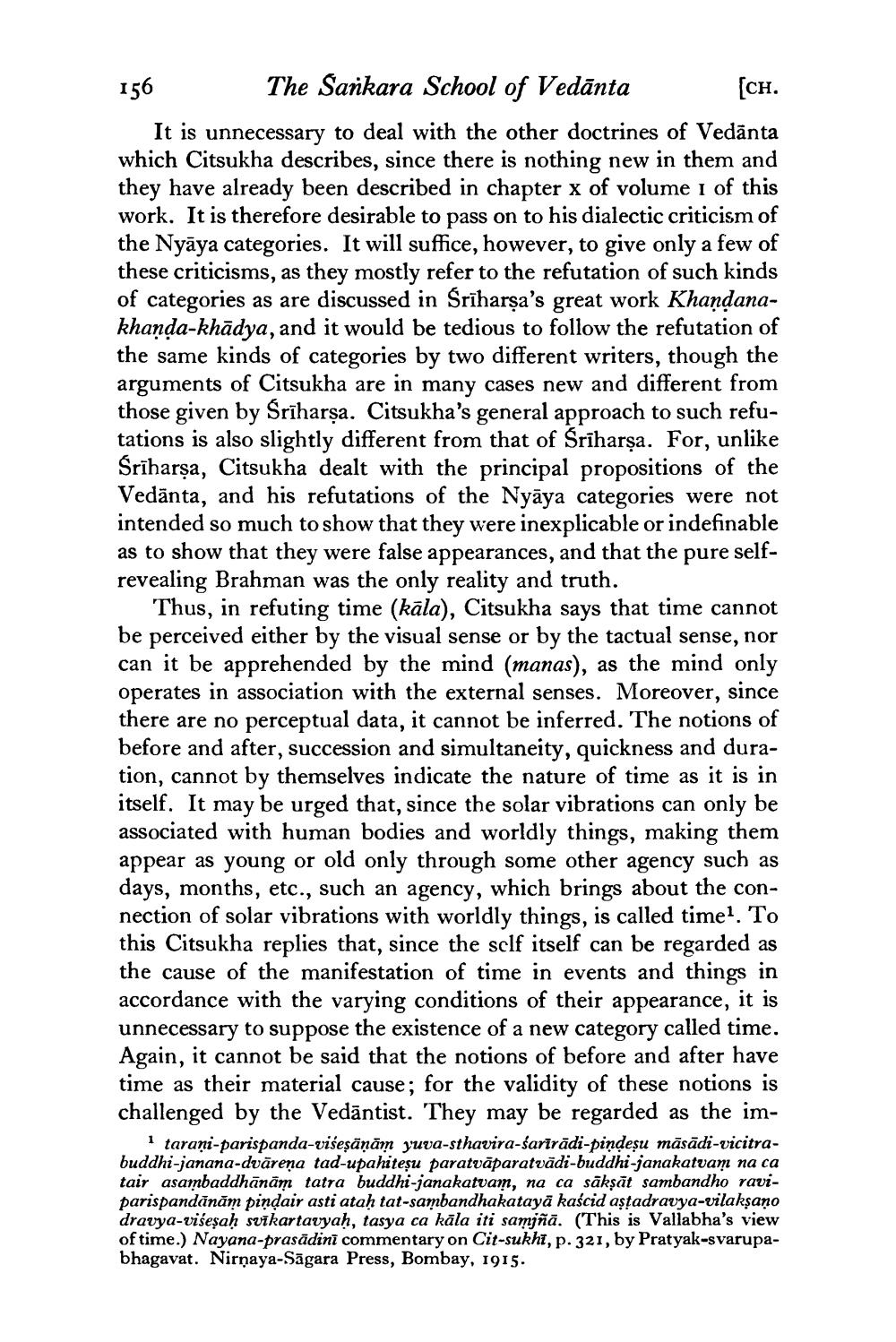________________
156 The Sankara School of Vedānta [cH.
It is unnecessary to deal with the other doctrines of Vedānta which Citsukha describes, since there is nothing new in them and they have already been described in chapter x of volume 1 of this work. It is therefore desirable to pass on to his dialectic criticism of the Nyāya categories. It will suffice, however, to give only a few of these criticisms, as they mostly refer to the refutation of such kinds of categories as are discussed in Sriharsa's great work Khandanakhanda-khādya, and it would be tedious to follow the refutation of the same kinds of categories by two different writers, though the arguments of Citsukha are in many cases new and different from those given by Sriharşa. Citsukha's general approach to such refutations is also slightly different from that of Sriharsa. For, unlike Sriharşa, Citsukha dealt with the principal propositions of the Vedānta, and his refutations of the Nyāya categories were not intended so much to show that they were inexplicable or indefinable as to show that they were false appearances, and that the pure selfrevealing Brahman was the only reality and truth.
Thus, in refuting time (kāla), Citsukha says that time cannot be perceived either by the visual sense or by the tactual sense, nor can it be apprehended by the mind (manas), as the mind only operates in association with the external senses. Moreover, since there are no perceptual data, it cannot be inferred. The notions of before and after, succession and simultaneity, quickness and duration, cannot by themselves indicate the nature of time as it is in itself. It may be urged that, since the solar vibrations can only be associated with human bodies and worldly things, making them appear as young or old only through some other agency such as days, months, etc., such an agency, which brings about the connection of solar vibrations with worldly things, is called timel. To this Citsukha replies that, since the self itself can be regarded as the cause of the manifestation of time in events and things in accordance with the varying conditions of their appearance, it is unnecessary to suppose the existence of a new category called time. Again, it cannot be said that the notions of before and after have time as their material cause; for the validity of these notions is challenged by the Vedāntist. They may be regarded as the im
tarani-parispanda-visesānām yuva-sthavira-śarīrādi-pindesu māsādi-vicitrabuddhi-janana-dvāreņa tad-upahiteșu paratvāparatvādi-buddhi-janakatvam na ca tair asambaddhānām tatra buddhi-janakatvam, na ca sāksāt sambandho raviparispandānām pindair asti ataḥ tat-sambandhakatayā kaścid aştadravya-vilakşaņo dravya-višeşaḥ svikartavyaḥ, tasya ca kāla iti samjñā. (This is Vallabha's view of time.) Nayana-prasādini commentary on Cit-sukhi, p. 321, by Pratyak-svarupabhagavat. Nirnaya-Sāgara Press, Bombay, 1915.




